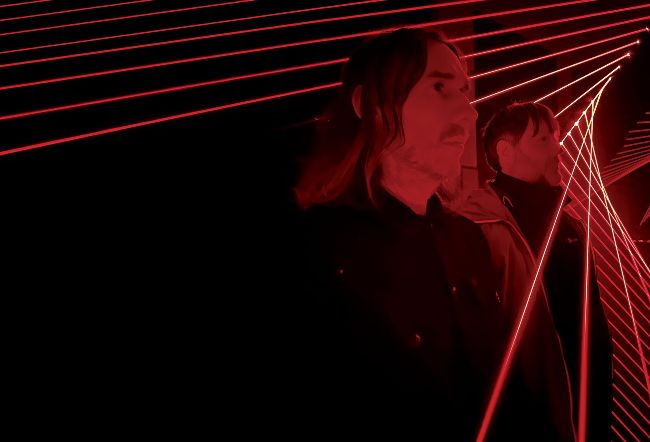What started in 1998 as a hobbyist seven-inch label, putting out records by pals in Bristol, has blossomed into one of the UK’s – if not the world’s – most intriguing psychedelic and experimental labels, loved by both its fans and its own acts. Praised by Stewart Lee, Julian Cope and Elijah Wood, it’s time to celebrate 25 years of Rocket Recordings.

Chris Reeder, Rocket…Rocket… from their
Images: Rocket Records
Blast Off!
Rocket acts reveal all about being in the label’s orbit.
DAVID J SMITH, THE HOLY FAMILY
Named after a 1991 Channel 4 documentary on Angela Carter, London’s The Holy Family are one of Rocket’s newest signings, bringing kosmische, Zeuhl and folk-based incantations, mixed with electronica. They mutated from instrumental proggers Guapo and are led by David J Smith alongside Kavus Torabi from Knifeworld, Gong, Utopia Strong; Emmett Elvin from Knifeworld; Sam Warren from Thumpermonkey and Michael J York from Utopia Strong and The Witching Tale (with his partner, Mediæval Bæbes’ Katherine Blake). Their new album Go Zero is out now.
You’re a new kid on the block, then?
Well, old ‘new kid’!
How did you meet Rocket? It was through Kavus. I was in the process of evolving my very long-term band Guapo. When we were working on the first [self-titled] record about five years ago, Kavus suggested we talk to Rocket to release it.
What is the difference between Guapo and The Holy Family? The big difference is I’m no longer the drummer, I’m the so-called frontman [laughs]. I’m still playing, but it’s electronic percussive set-up as well as vocals. The Holy Family might not be as ‘prog’ as Guapo – that’s what Guapo were labelled over the years – there’s a more mantric, psychedelic element to the music. However, whether it be visual art or music, I always like to ground it in some kind of concept – a classic progressive trope that I’ve kept.
How did the debut album, The Holy Family, happen?
We originally convened to do a new Guapo record, but I wanted to do something different and not just rehearse intensively, write lots of material and then go into the studio. So we went to a bandmate’s house out in the countryside and had a long weekend there. We improvised, and I didn’t use a drum kit. When that was complete, I began work on it straight away, editing and mixing, but I completely hit a brick wall and put it aside, really disillusioned. Slowly, I decided to revisit it. And that’s when I thought, “I’m going to try something I’ve never done before with this band. I’m going write lyrics for it and sing!” That’s when the inspiration came. I realised this was a completely different band and it needed a new identity.
You’re an artist, too. How did The Holy Family visuals come about?
I’m a sculptor – by day in the marine industry and outside of that I’m avant-garde, influenced by people like Malcolm Poynter [whose work graced the sleeve of Peter Gabriel’s fourth album]. I worked alongside Chris at Rocket and we eventually hit on the perfect look for the music.
Rocket Recordings was the label for you, then?
Yes. I didn’t approach anyone else. After being on many labels over decades, it’s been a wonderful experience, and the feeling among the acts seems to be “we’re in it together”, no matter what music we make.
Your second album Go Zero has just come out – tell us about it. Go Zero is slightly darker and heavier in terms of the concept, and 95-per-cent culled from improvisations. The main concept came from an artist and novelist, Brian Catling, who wrote a trilogy of books called The Vorrh, which is set in many worlds, eventually in London. It proposes that there’s no such thing as a future; we’re constantly moving forward into our past until we eventually reach our own creation, or Tree Of Life. That’s why Chris at Rocket tied the artwork in with the forest and a kind of luminescence that’s humming from it.
What’s the appeal of working with Rocket?
There’s just that professional DIY ethic, their dedication and their honesty. I don’t think anyone could work with them and go, “I’m not gonna do another record for this label.” There’s no one better for us to work with. JK